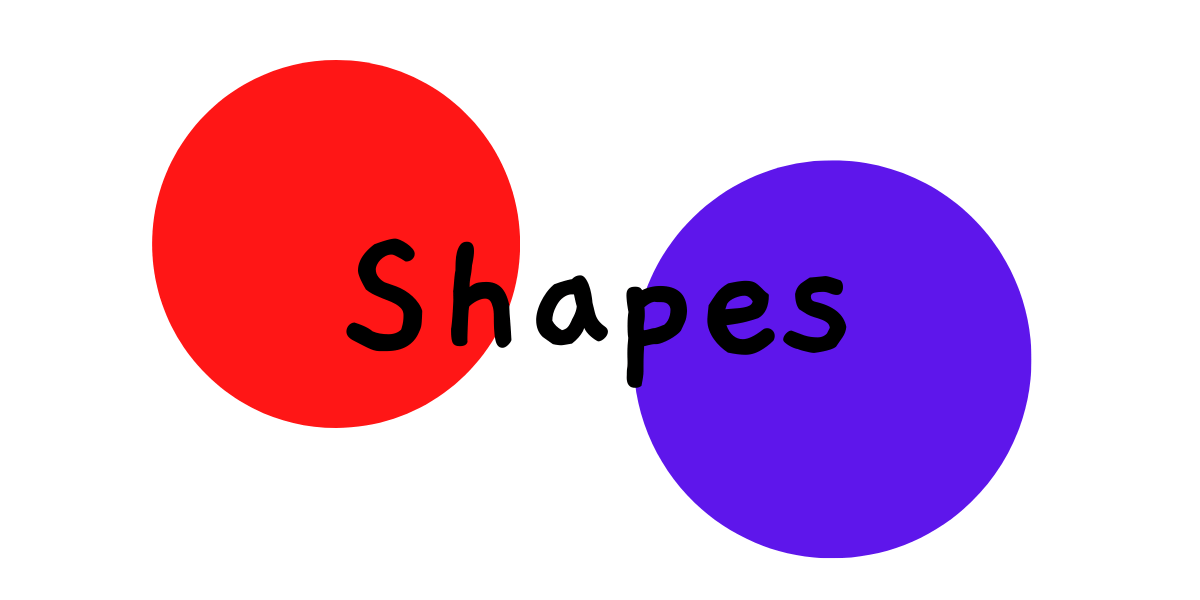Every day, all around us, there are shapes in our world. Teaching young children shapes not only helps them with their English, but it can also help them describe things that they don’t yet know how to say in English. Learning the names of shapes in English can be hard. But, with practice, your child will be able to identify and draw any shape that they want to.
To help you out, we have split our shapes into two sections: basic and geometric. Basic shapes include the most commonly used shape vocabulary like squares, circles, and triangles.
Our other section is geometric shapes. These shapes are important for their use in math. Once your child is ready to learn geometry, teaching them these shapes is a great starting point.
If you have any questions, please feel free to message us by clicking on the image below.

Our Shapes List (with Pictures)
In this list of shapes, you will find a picture, an audio file, and a sample sentence to see how this vocabulary is used in everyday conversation. For more shape resources, continue down our list for shape flashcards and shape videos from around the internet.
Basic Shapes For Kids
When teaching kids their shapes, these basic shapes are a good place to start. They are not too hard and are commonly found in the world around us.
Circle

Can you see a circle?
Yes, I can.
Square

Can you see a square?
No, I can’t.
Triangle

Where is the triangle?
It is on the desk.
Rectangle

Where is the rectangle?
It is under the book.
Star

What shape is it?
It is a star.
Crescent

What shape is it?
It is a crescent.
Oval

What shape is it?
It is a crescent.
Geometric Shapes and Names
Geometric shapes are just as important as basic shapes. They might be seen less often than basic shapes, but they are necessary for your child’s future math classes.
Pentagon

How many pentagons can you see?
I can see four pentagons.
Rhombus

How many rhombuses can you see?
I can see two rhombuses.
Parallelogram

Can you draw a parallelogram?
Yes, I can draw a parallelogram.
Hexagon

Can you draw a hexagon?
No, I can’t draw a hexagon.
Octagon

What color is the octagon?
The octagon is blue.
Cube

What color is the cube?
The cube is pink.
Pyramid

Can you show me a pyramid?
Yes, I can.
Rectangular Prism

Can you show me a rectangular prism?
No, I can’t.
Cylinder

Do you like cylinders?
Yes, I do.
Flashcards to Learn The Name of Shapes in English
Click here to download our free shape flashcards. Use these to help teach your child about shapes in English. We encourage you to use them in fun and engaging games and not as rote memory tools.
If you are looking for some fun games to play with your child, you can take a look at our vocabulary game post to get some ideas.
Shape Videos From Around the Internet
Songs and videos can be a fun way to engage your child in their English learning. After you teach new vocabulary, songs can help review and entrench these new vocab words in your child’s head. Below you can find three different songs or song collections that your child can watch.
Shape Songs Collections – Busy Beavers
Shapes All Around – Pinkfong
Cookie Monster’s Favorite Shape – Sesame Street
More Opportunities to Learn
Shapes are usually one of the first units we teach children. They make up an important way for children to describe things that they don’t yet know how to say in English. As well, they help them in geometry, a primary branch of math.
After shapes, we usually encourage children to learn about colors. They can then combine the two to learn how to describe simple objects (shapes) with simple adjectives (colors). To learn more about colors, you can take a look at our colors in English post.
If you have any questions, please comment on this post so we can help you out however we can.
As well, if you are interested. We are planning online storytelling classes to help your child train their ear by listening to a native English speaker. If you are interested, sign up by adding your email below. We have already posted our first story, Little Red Riding Hood.

